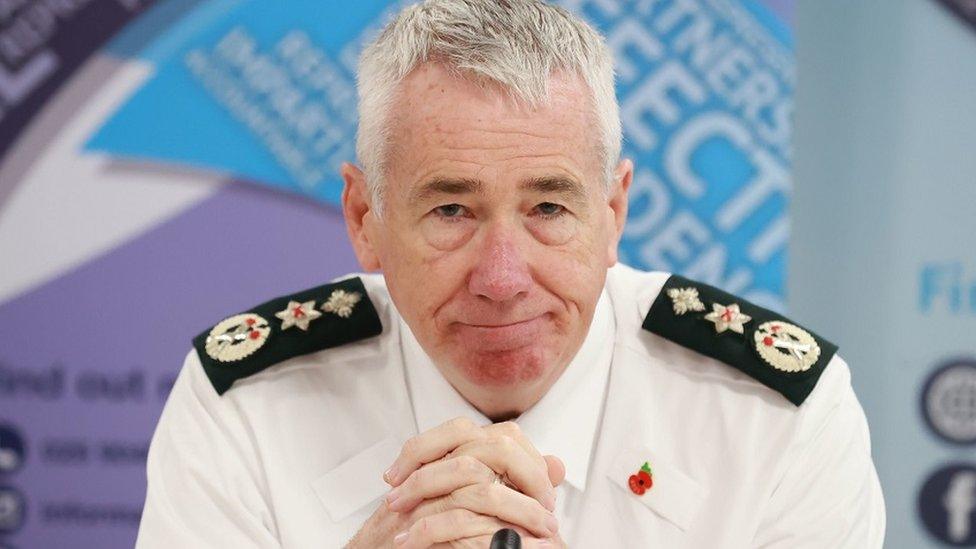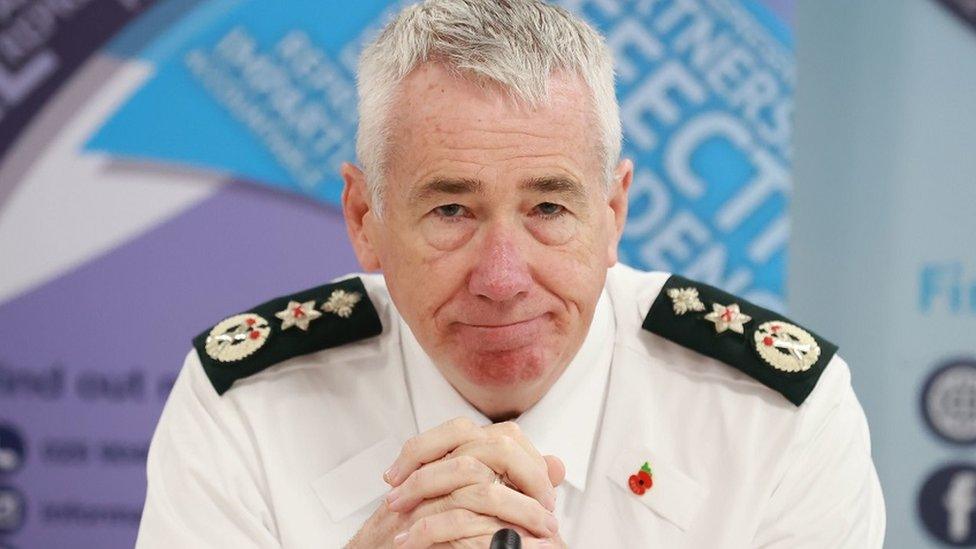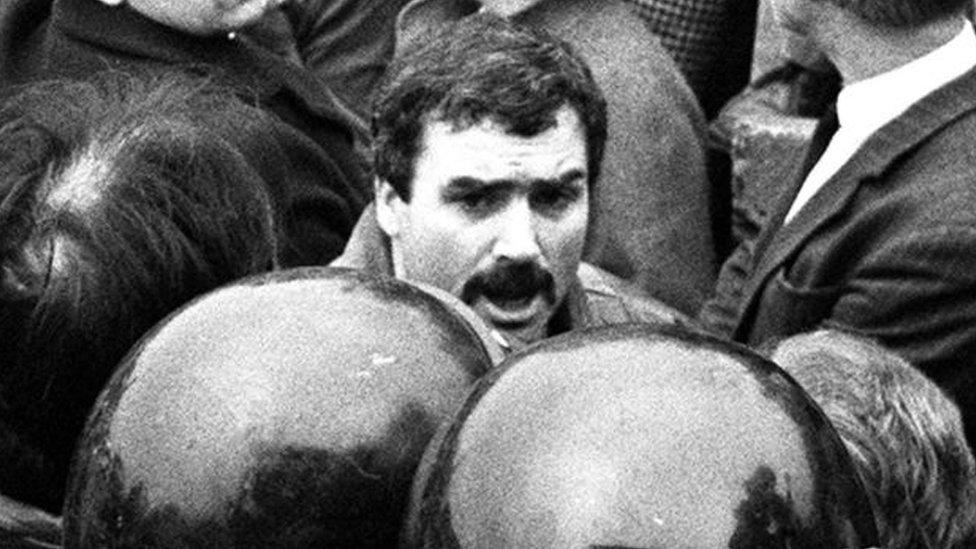Jon Boutcher: What is on the new chief constable's in-tray?
- Published

Jon Boutcher is a former chief constable of Bedfordshire Police
Jon Boutcher is a lifelong fan of Derby County FC.
A big club fallen upon hard times, financial problems sent them into administration and slipping down divisions.
It might appear like Mr Boutcher gets little escape from harsh economic realities.
Welcome, chief constable, to the Police Service of Northern Ireland (PSNI), which needs £52m to balance the books by next March.
His remarks on taking over the PSNI this week echo those he made on retiring from Bedfordshire Police in 2019.
Money tree?
There have been four years between Mr Boutcher's chief constable jobs, but his message has not changed: policing must be properly funded.
With Stormont heading for a £450m overspend and no Stormont Executive to shuffle around what little cash there is, he might be better shaking the money tree in London.
The PSNI is on course to end the financial year in deficit and has about 6,500 officers - approximately 1,000 below its peak in 2007.
If the financial landscape does not alter, the numbers will keep falling and other cutbacks will become necessary, such as reducing neighbourhood patrolling.
Mr Boutcher believes the PSNI should have "at least" 7,000 officers.
He has already lobbied Northern Ireland Secretary Chris Heaton-Harris and the permanent secretary at the Department of Justice, Richard Pengelly.
Calls of congratulations on his appointment were met with the response: "Thank you very much, but we need to have a conversation about money."
He has talked about the police being at the head of the queue, but is equally not blind to needs in health and education.
Financial problems are arguably top of a pile of issues.
The only way was up
There is also the need to improve morale among the workforce and rebuild public confidence damaged by recent crises which forced out his predecessor, Simon Byrne.
The mood within the PSNI has been lifted by his appointment.
In truth, the only way was up.
He announced that the PSNI would not appeal a ruling that two officers were unlawfully disciplined after a Troubles' commemoration event.
The event marked the anniversary of the 1992 Sean Graham bookmakers attack, in which five people were killed.
Simon Byrne said he was considering an appeal to the ruling, but subsequently resigned as chief constable.
Announcing that the judgement would not be challenged was a quick and easy win for Mr Boutcher, one which got the Police Federation back on side.
Gender imbalance
Mr Boutcher is alive to multiple issues - including sickness absence and a high number of people on restrictive duties, unable to be on the front line.
Those two things combined, that is something of the order of 1,600 people.
Getting them back - easier said than done - would be like a new recruitment campaign, Mr Boutcher told the media last Wednesday.

Simon Byrne quit as PSNI chief constable after a series of crises within the force
Off the back of a former female officer winning a sex discrimination case against the PSNI, Mr Boutcher also recognises that a gender imbalance among senior officers needs addressed.
Last week, an industrial tribunal unanimously ruled in favour of Emma Bond, stating her claims of discrimination on the basis of her gender were "well-founded".
The bridge between Mr Boutcher's chief constable jobs has been Operation Kenova, an independent investigation dealing with Troubles' legacy cases.
That team has investigated historical crimes, covering murder and torture, and the role of the state, including MI5. and a report is due out in the coming months.
Mr Boutcher is no stranger to Northern Ireland, its policing and its politics.
He seems well equipped to handle one of the toughest challenges in UK policing, but once the honeymoon is over, he will find himself in the results business.
- Published8 November 2023

- Published7 November 2023

- Published6 April 2023
